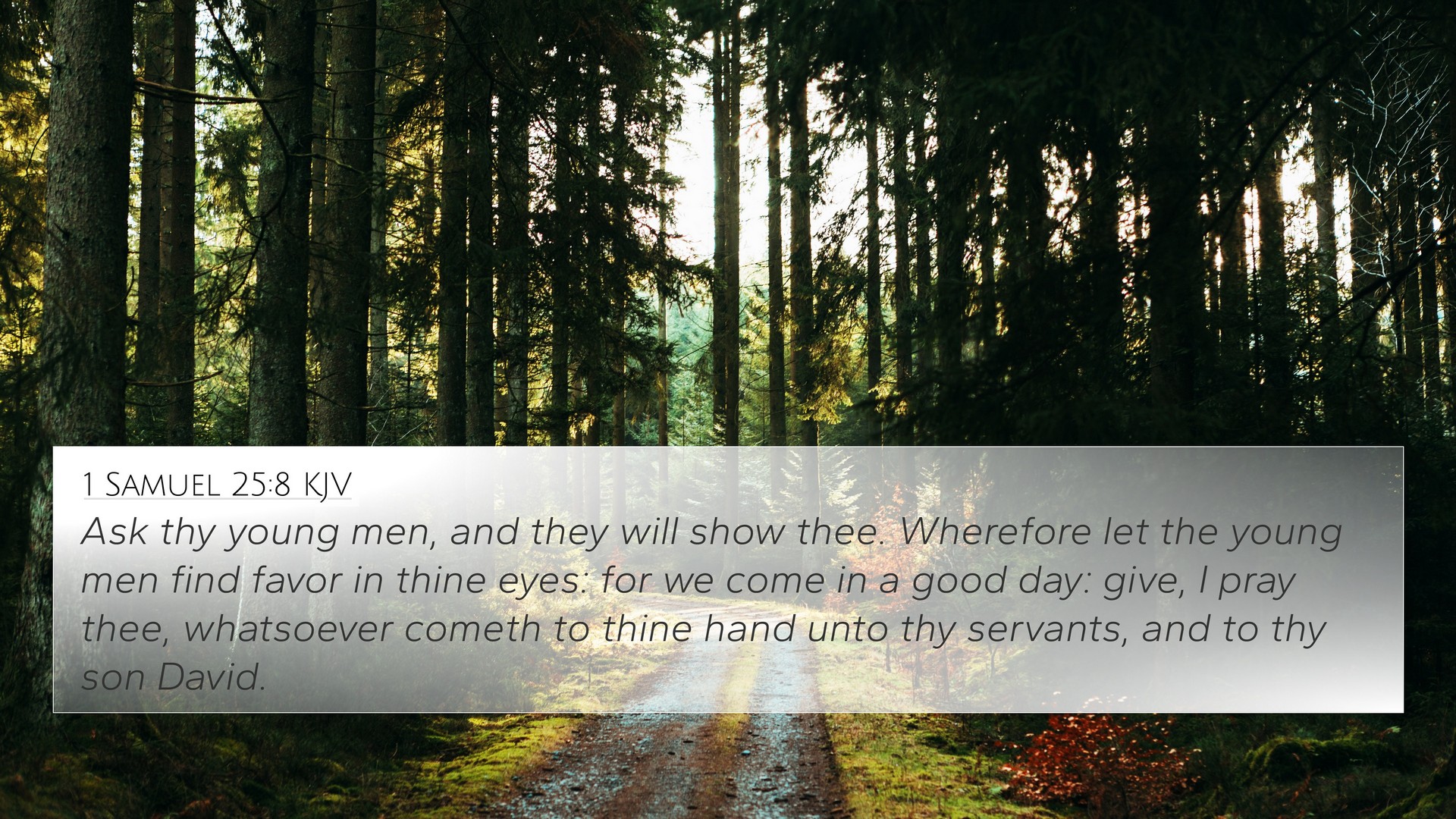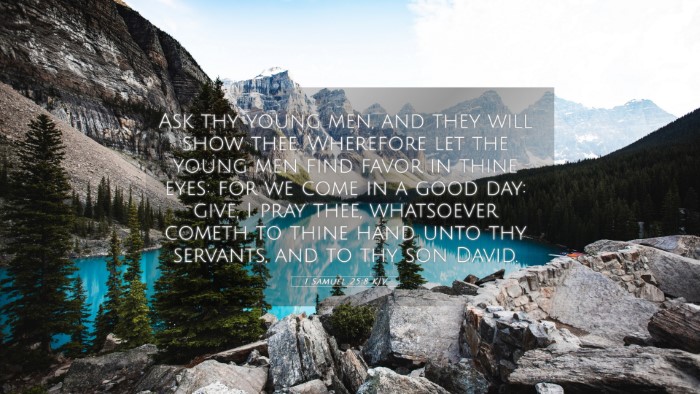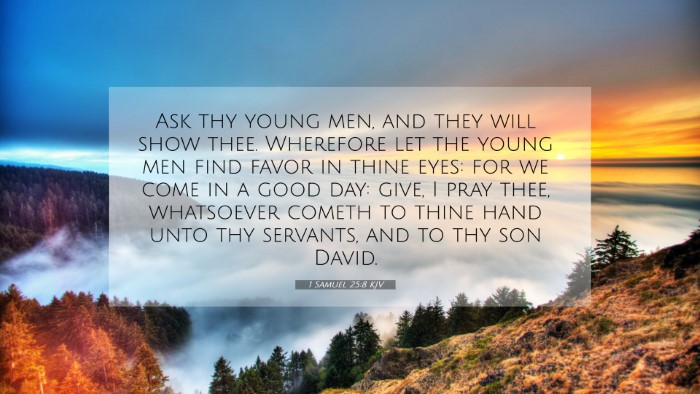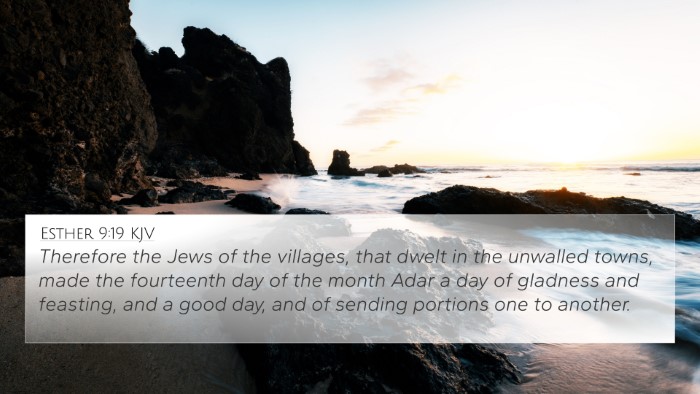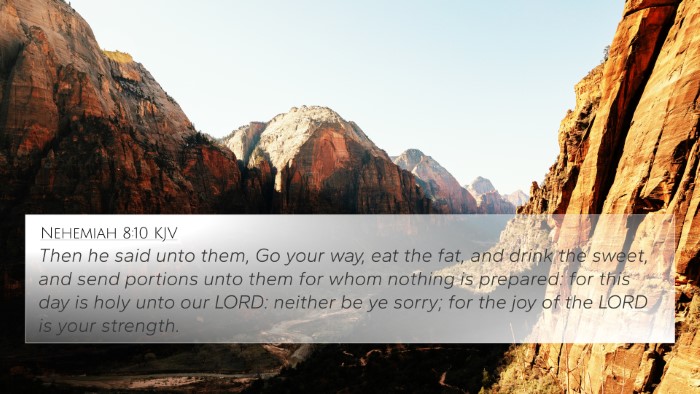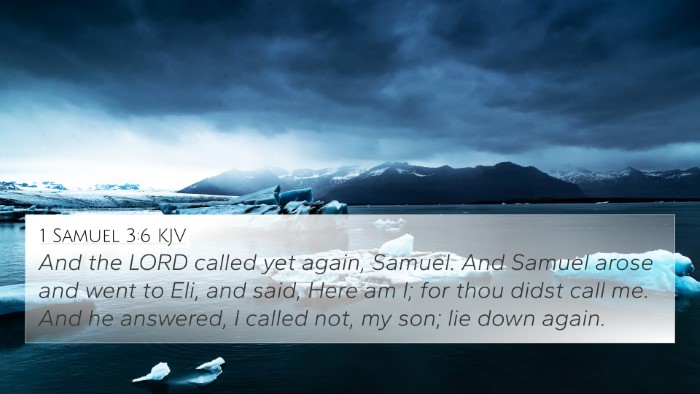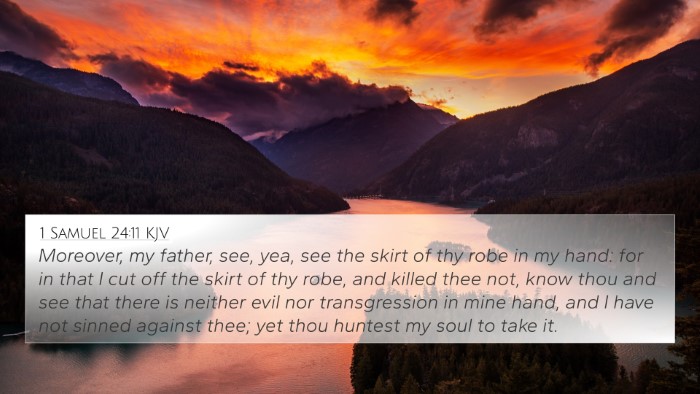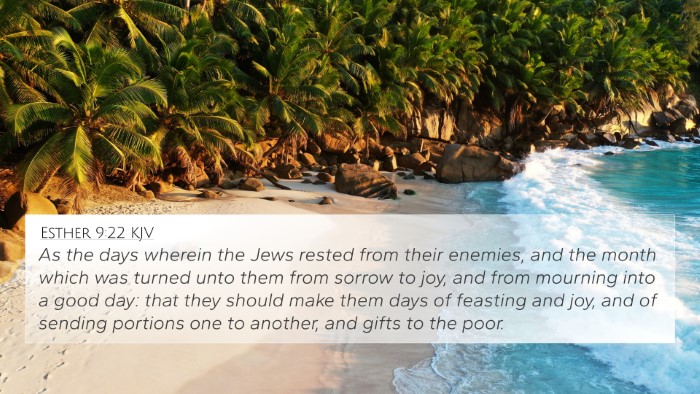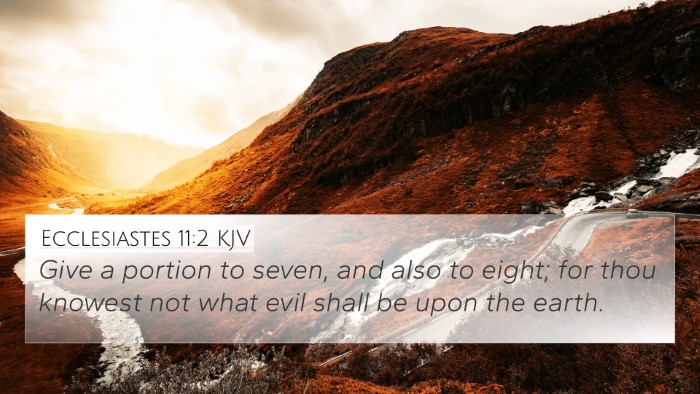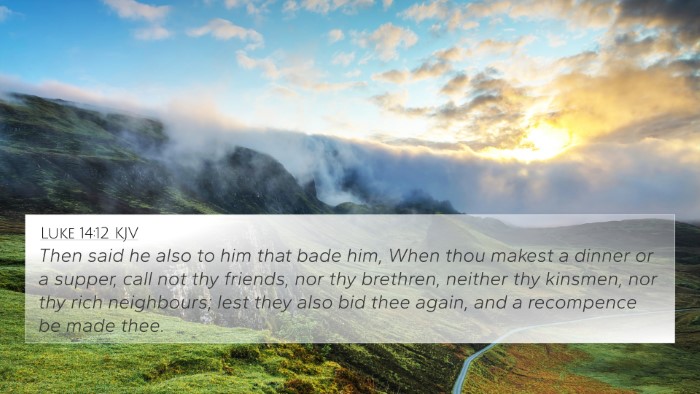Understanding 1 Samuel 25:8
Bible Verse: 1 Samuel 25:8 - "Ask your young men, and they will tell you. Therefore let my young men find favor in your eyes, for we come on a feast day. Please give whatever comes to your hand to your servants and to your son David."
Verse Meaning and Interpretation
This verse exemplifies a critical moment in the narrative of David and his interactions with Nabal, a wealthy but harsh man. David's request for provisions is set against the backdrop of the customs of hospitality in ancient Israel.
Commentary Insights
- Matthew Henry:
Henry emphasizes the importance of David’s respectful approach in seeking aid from Nabal. David’s request shows his understanding of both the need for sustenance and the necessity for relationships built on respect and acknowledgment of the occasion.
- Albert Barnes:
Barnes discusses the cultural implications of David’s request, explaining that it highlights the significance of generosity and goodwill, especially during a time of celebration. This also serves to showcase David's leadership and his awareness of social customs.
- Adam Clarke:
Clarke notes that the abundance of provisions requested signifies not merely a physical need but also a spiritual outreach, indicating that David is seeking to build a rapport with those around him, which reflects biblical principles of community and support.
Cross-References and Thematic Links
1 Samuel 25:8 finds connections with several other passages that illuminate its themes of hospitality, community, and respect for others throughout the Scriptures.
Related Bible Verses
- Leviticus 19:10: "And you shall not glean your vineyard, nor shall you gather every grape of your vineyard; you shall leave them for the poor and the stranger: I am the LORD your God." - This emphasizes the idea of providing for others, reflecting the communal responsibilities intertwined in hospitality.
- 2 Samuel 2:5: "And David sent messengers to the men of Jabesh Gilead, and said to them, 'Blessed are you of the LORD, for you have shown this kindness to your lord, to Saul, and have buried him.'" - Here, King David recognizes and rewards acts of kindness, illustrating his character in leadership.
- Proverbs 11:25: "The generous soul will be made rich, and he who waters will also be watered himself." - This proverb echoes the reciprocity of generosity which David embodies in his request to Nabal.
- Matthew 10:10: "Nor bag for your journey, nor tunics, nor sandals; and greet no one along the road." - Jesus emphasizes reliance on hospitality and mutual aid, imitating the practice of sharing provisions found in the Old Testament.
- Psalms 37:25: "I have been young, and now am old; yet I have not seen the righteous forsaken, nor his descendants begging bread." - Indicating God's provision, this verse reassures us of His faithfulness, aligning with David's appeal for support.
- Luke 10:7: "And remain in the same house, eating and drinking such things as they give, for the laborer is worthy of his wages. Do not go from house to house." - This passage aligns with the idea of receiving hospitality graciously and responsibly, akin to David's expectations.
- 1 Peter 4:9: "Be hospitable to one another without grumbling." - Reflecting the hearts of both David and the recipients of his request, Peter teaches the essence of hospitality in community life.
Conclusion
1 Samuel 25:8 is rich with meaning and illustrates the intertwining of community, respect, and hospitality in biblical narratives. Understanding this verse through the commentaries of Matthew Henry, Albert Barnes, and Adam Clarke sheds light on the cultural and spiritual implications surrounding the request made by David. The underlying themes resonate across various scripture passages, enriching the reader's understanding of interconnected biblical principles.
